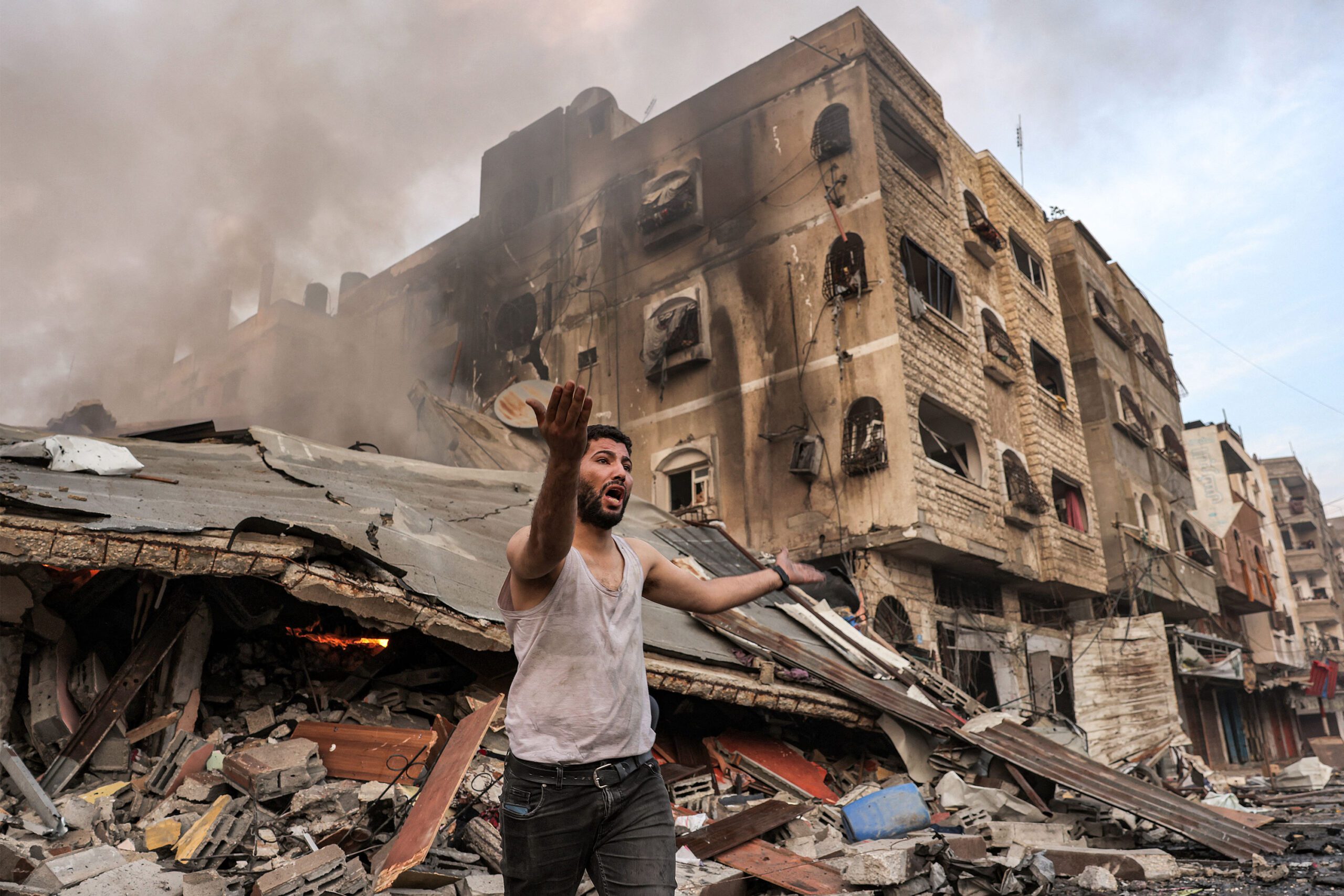As Israeli forces continue its ongoing aggressions against Gaza civilian areas and hospitals specifically, with tanks surrounding and targeting the al-Shifa, al-Ahli and the Indonesian hospital complexes for the last few days, calls for a ceasefire and awareness levels of the current dynamics of the occupation have been at an all-time high, creating unprecedented pressures for Israeli and supportive governments.
At the moment, the number of Gazans killed by the Israeli aggressions have exceeded 11,500, including 4,710 children.
The same governments that enabled Israeli forces’ genocidal actions before and after Operation Al-Aqsa Flood, claiming support for Israel’s so-called “right to self-defense” have now begun switching positions, with some even calling for a ceasefire.
Changing Attitudes Towards Protests
During the first few weeks of conflict, several European and American governments violently cracked down on pro-Palestinian demonstrations, especially the English, US, French and German governments. This included the banning of Palestinian flags in demonstrations, among other suggestions to criminalize it.
After a few weeks into the current aggressions, the degree of violence and the genocidal acts of Israeli forces have been far too great to hide, as Palestinian testimonies continued to display the atrocities committed by the Israeli occupation.
Public awareness of Palestinian rights and ongoing violations have prompted millions of protesters across the world to take to the streets, boycott occupation-supporting products and take action in diverse ways through various platforms.
Such social movements and campaigning, especially at the level of the youth, have pressured many oppressive Western governments to relax or tone down their anti-Palestinian policies. They have prompted the sacking of UK Secretary of State Suella Braveman, notorious for her anti-Palestinian position. They also re-allowed protests in countries such as France, where demonstrations have never been forbidden except in regards to pro-Palestinian issues.
Mounting Pressures
In addition to the internal and economic pressures of the current round of fighting (see our article here), pressure is now mounting on Israel diplomatically.
Over nine countries (Bolivia, Chile, Columbia, Honduras, Bahrain, Jordan, Turkey, Chad and South Africa) have severed ties with or recalled their ambassador from Israel, as the occupation’s violations continue and increase in violence. South Africa’s president Cyril Ramaphosa has called on the International Criminal Court to investigate Israel for war crimes in Gaza, becoming the next diplomat to make this demand, after Spain’s Minister of Social Rights called for this demand last month.
In the USA, a group of Palestinian and human rights groups are suing the Biden administration over what they consider its support of Israel’s genocide in Gaza.
More recently, a poll conducted by Reuters/Ipsos found that 68 percent of American respondents agree with the statement that “Israel should call a ceasefire and try to negotiate,” despite the heavy governmental and mainstream media propaganda in favor of Israeli forces in the United States.
The People vs. Governments
While people and organizations across the world have overwhelmingly been calling for a ceasefire, the respect of Palestinian people’s rights, and the sanctioning of Israeli forces, most Western governments continued enabling the current onslaught.
On Wednesday, the United Kingdom Parliament voted against a ceasefire, with 293 MPs voting against, 232 abstaining and 125 voting for. Importantly, the Labour Party saw the departure of over 50 MPs who broke ranks to vote for Gaza ceasefire, in opposition to the direction of current party leader Keir Starmer.
Such developments are clear indications of the deeply flawed state of so-called Western democracies, as they represent the current schism between governmental authorities and national popular opinion, not to mention the evidently undemocratic nature of enabling genocide outside the country.


